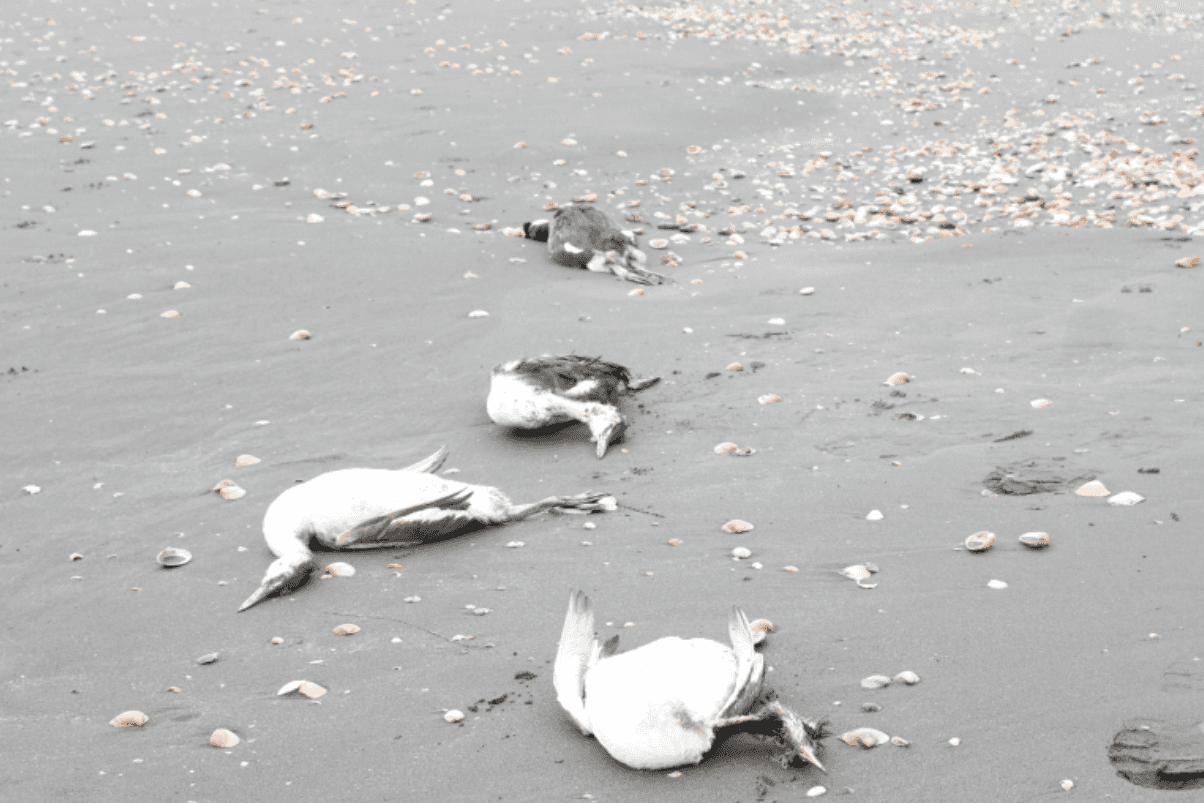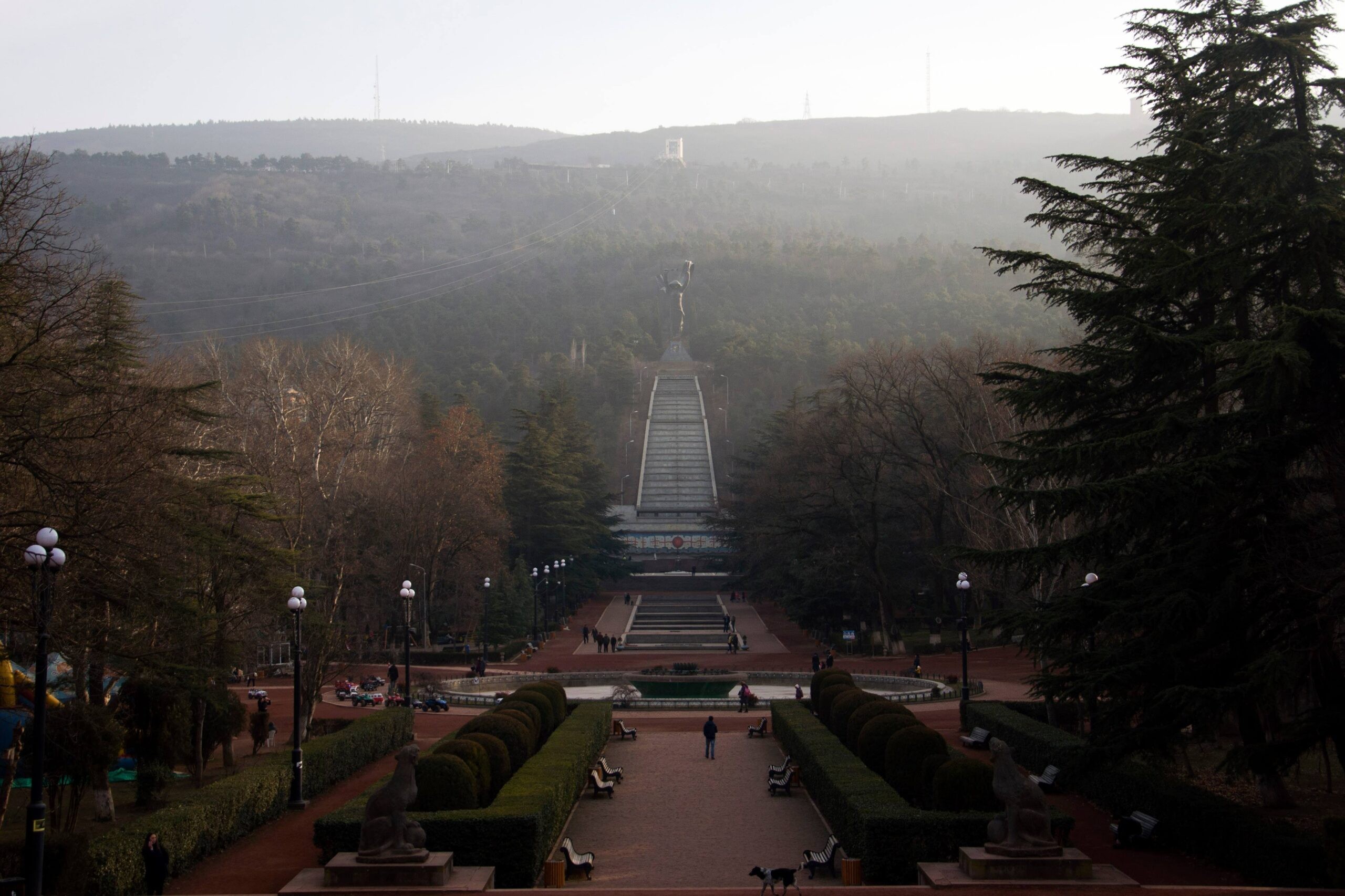
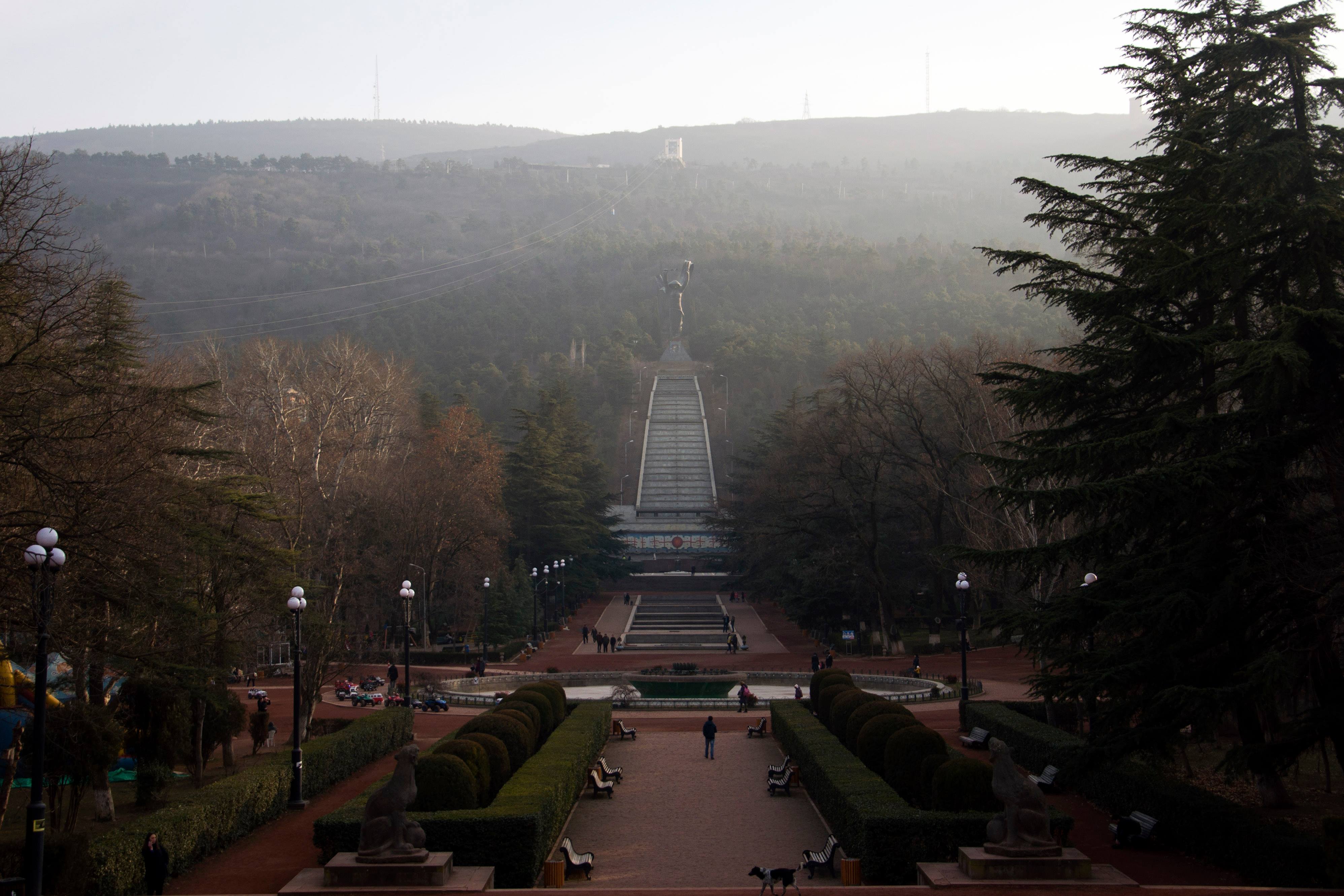
Green activists and their supporters gathered in Vake Park in Tbilisi on 27 January to celebrate the end of an almost six-year battle to halt construction of a hotel in the park.
The festive gathering was organised by environmental group Guerilla Gardening Tbilisi after Mayor Kakha Kaladze announced that authorities had reached an agreement with the project’s investor to cancel the project.
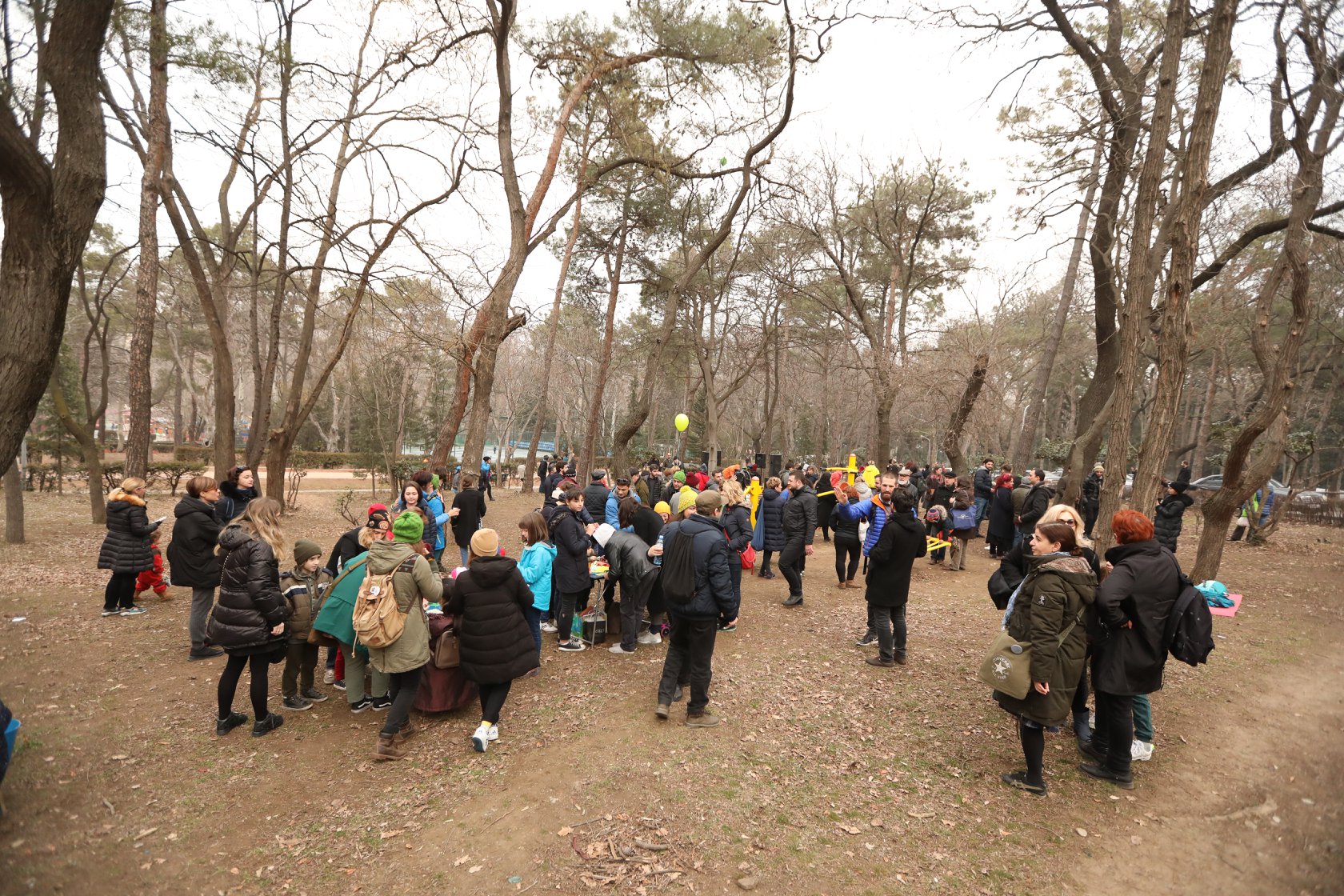
On 25 January, after Kaladze congratulated city residents on their win, Giorgi Zakaidze, the owner of Hotel Budapest, said they accepted the offer to either sell or exchange the property with the authorities.
‘We have negotiated a specific territory. I have alternatives and we will choose something from them’, Zakaidze said.
It is still unknown how much this will this cost Tbilisi or the investors; the Mayor’s Office has not shared the details of the deal.
Zakaidze told RFE/RL that the construction of the hotel was worth ₾20 Million ($7.5 million) and that after construction, they were supposed to pay 30% to the Tbilisi authorities. Zakaidze said that as the project had failed, the company was now owed a corresponding sum.
A Protest camp
According to an investigative documentary from Studio Monitori, the battle to prevent the construction in Vake Park, one of the biggest parks in the capital, began in 2013 after Guerilla Gardening Tbilisi discovered a building permit had been issued.
In the years since, environmental activists used many forms of protest to prevent construction including numerous demonstrations, staying in tents near the construction site, and several court cases.
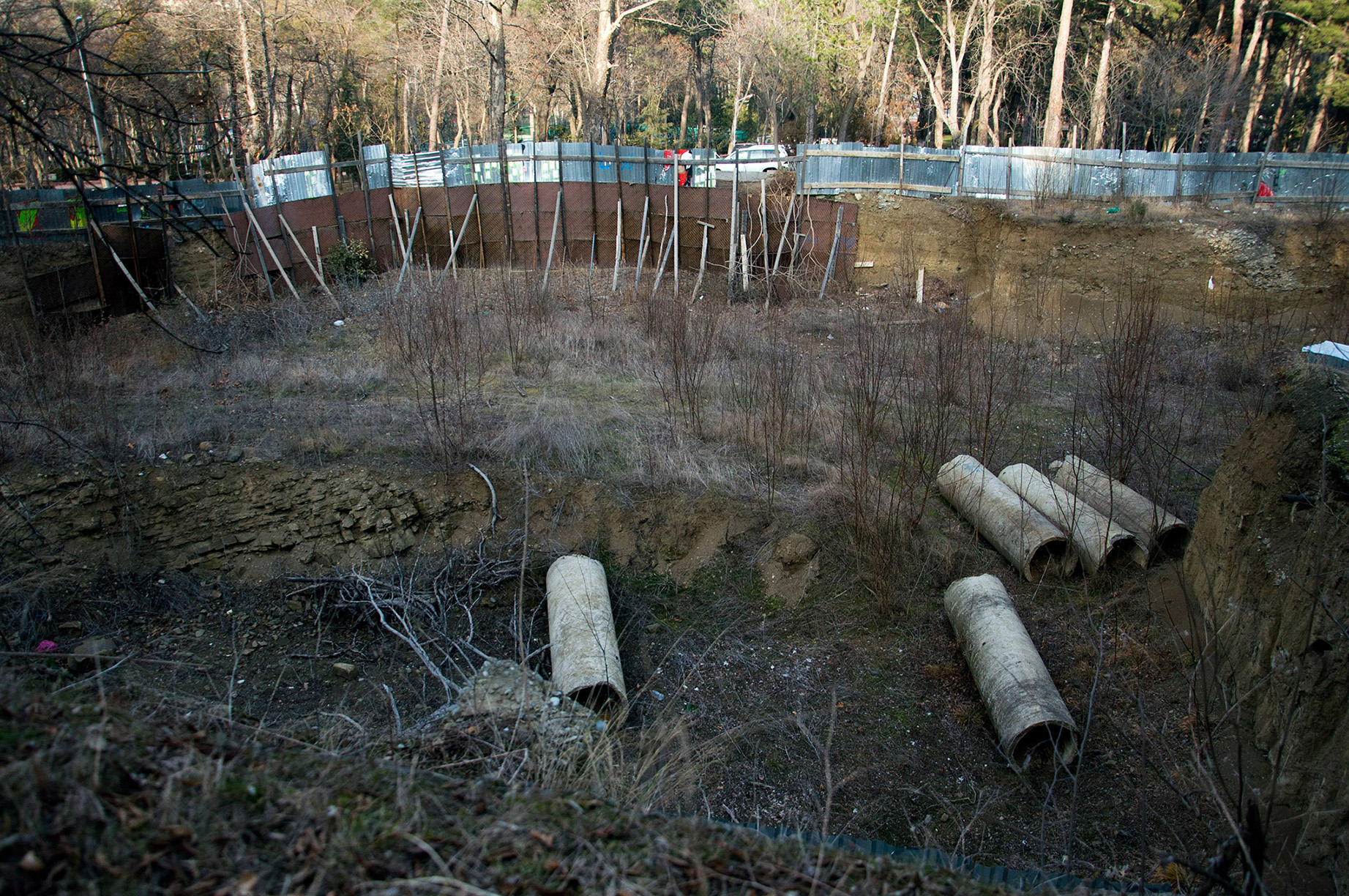
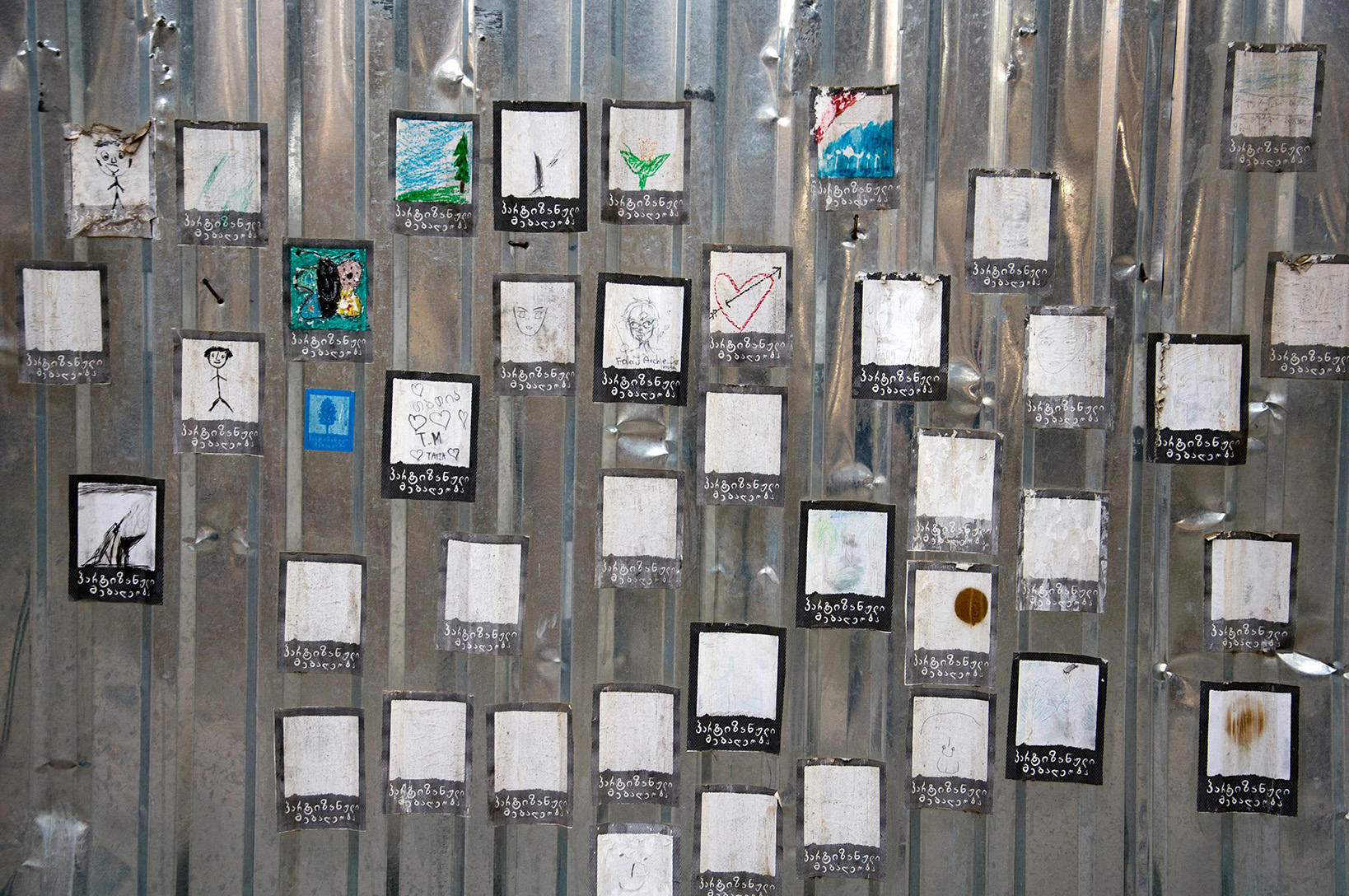
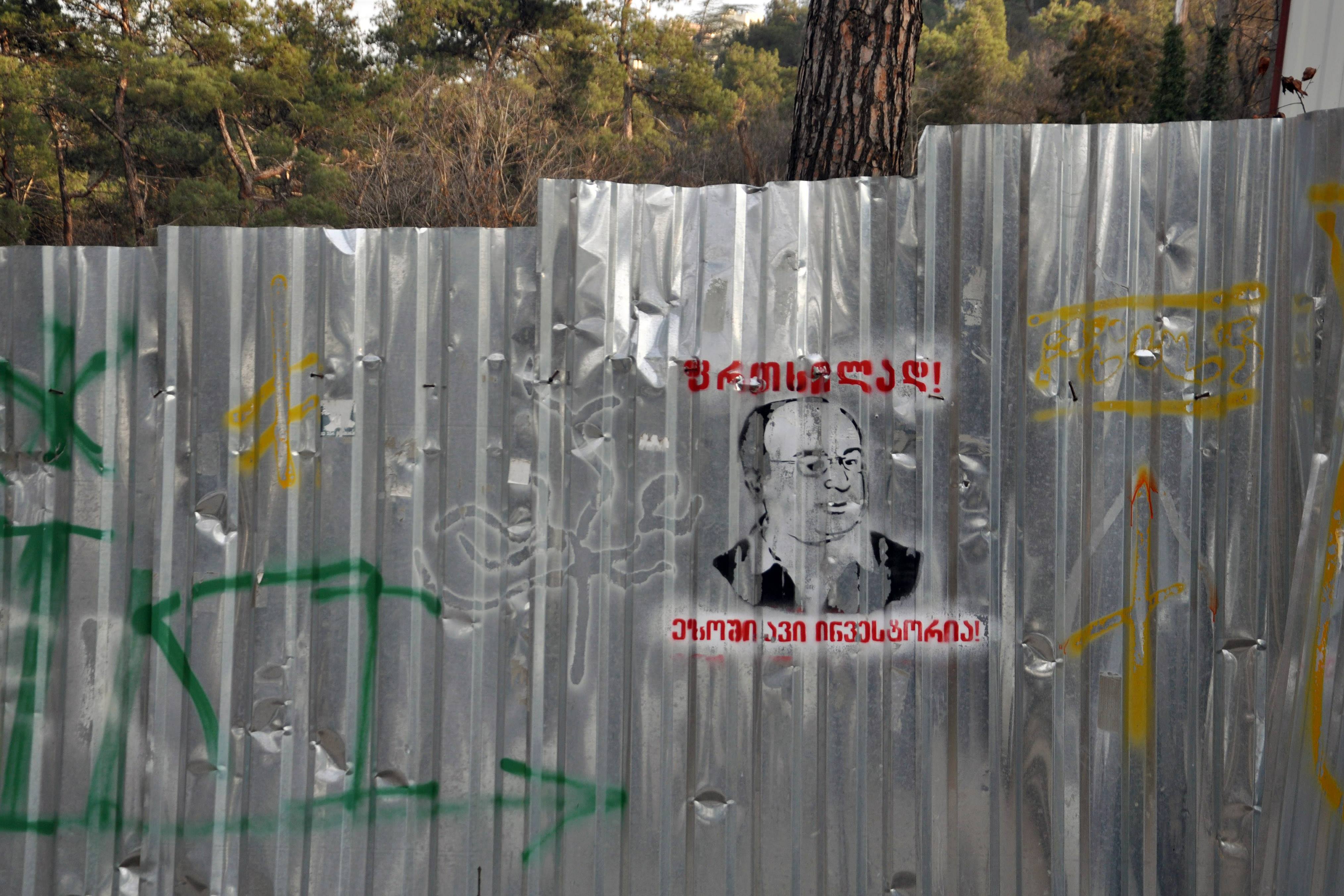
The site where investors wished to build the Hotel Budapest had previously been a restaurant, which was built in 1958 under the same name. Later, the land was transferred to private ownership, passing through several people including the family of Georgia’s second president, Eduard Shevardnadze.
In 2013, the land was bought by Tiflis Development for ₾2.7 million ($1 million).
The legal side of the battle
In June 2013, then Mayor of Tbilisi Gigi Ugulava granted an exception for the project with a special zoning agreement, as building in a recreational zone is otherwise prohibited. In September, a building permit to erect an eight-storey hotel in the park was granted.
After revelations emerged that the investor was going to construct a hotel in the park, environmental group the Green Alternative filed a complaint against it in court. They argued that the exception the Tbilisi Mayor had made needed strong substantiation, which Ugulava had not provided, making the building permit illegal.
The court took two years to examine the case before ruling in favour of Green Alternative in June 2016. The Mayor’s Office was ordered to reconsider the permit.
‘The court has ruled that upon issuing the zoning agreement, the decision was not substantiated, the possible negative impact on the surrounding recreational environment was not studied, and the public interest was not evaluated’, the court’s 2016 ruling said.
During the trial, the Mayor’s Office argued that the investor’s interests coincided with the public interest and moreover, the construction itself was in the public’s interest.
Tiflis Kostava and Graali, the two investor companies, later appealed the ruling. The court of appeals found in their favour, ruling that the special zoning agreement issued by the mayor was valid. It did not abolish the building permit which had expired in 2016.
Though green activists appealed, the Supreme Court did not proceed with the case.
Environmental activists ‘save the park’
After revelations that the legal battle over the building permit was deadlocked, environmental activists called on the city government to prevent construction. Kaladze’s response was to promise that he did not support construction in the park either and pledge that he would do everything he could do to prevent it.
Giorgi Zakaidze, the owner of Hotel Budapest recognised that the mayor was ‘under pressure from a small part of society’. He called for the execution of the court’s order, claiming he would sue the city otherwise.
Environmental activists expressed outrage at a claim by the investors that the territory did not belong to the park.
Nata Peradze, one of the founders of Guerilla Gardening Tbilisi, criticised Kaladze for using the Vake Park case for his own benefit.
‘He has called on Tbilisi residents to come together and protect our green spaces, which is cynical. It is up to us, the residents, and what we do, while he is paid to do his job and deliver his promise to cancel the zoning agreement’, Peradze told OC Media on 25 January.
‘He’s thanking me for defending the park. I don’t need his thanks while there are other controversial construction projects going on in the city’, she added.
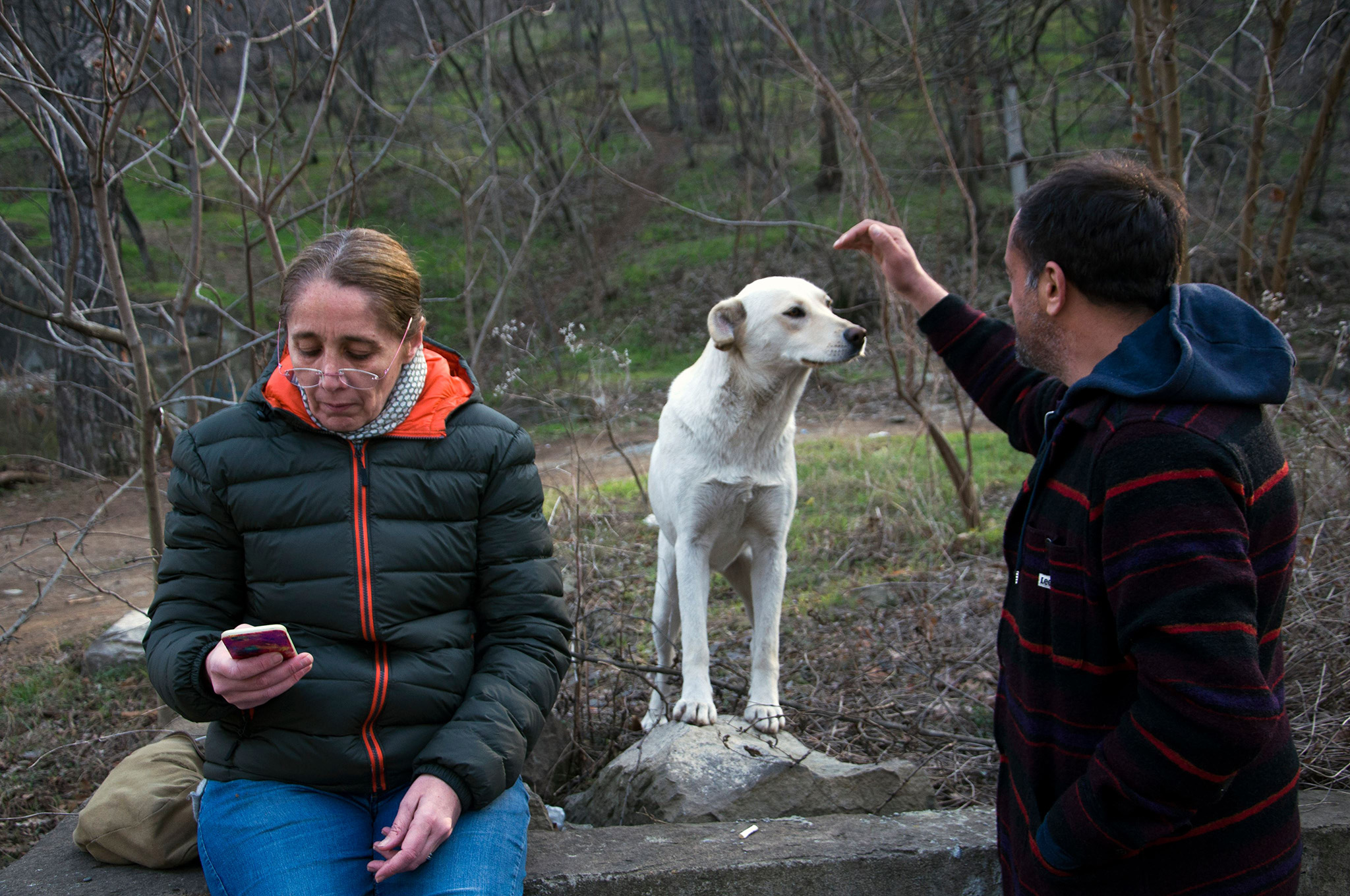
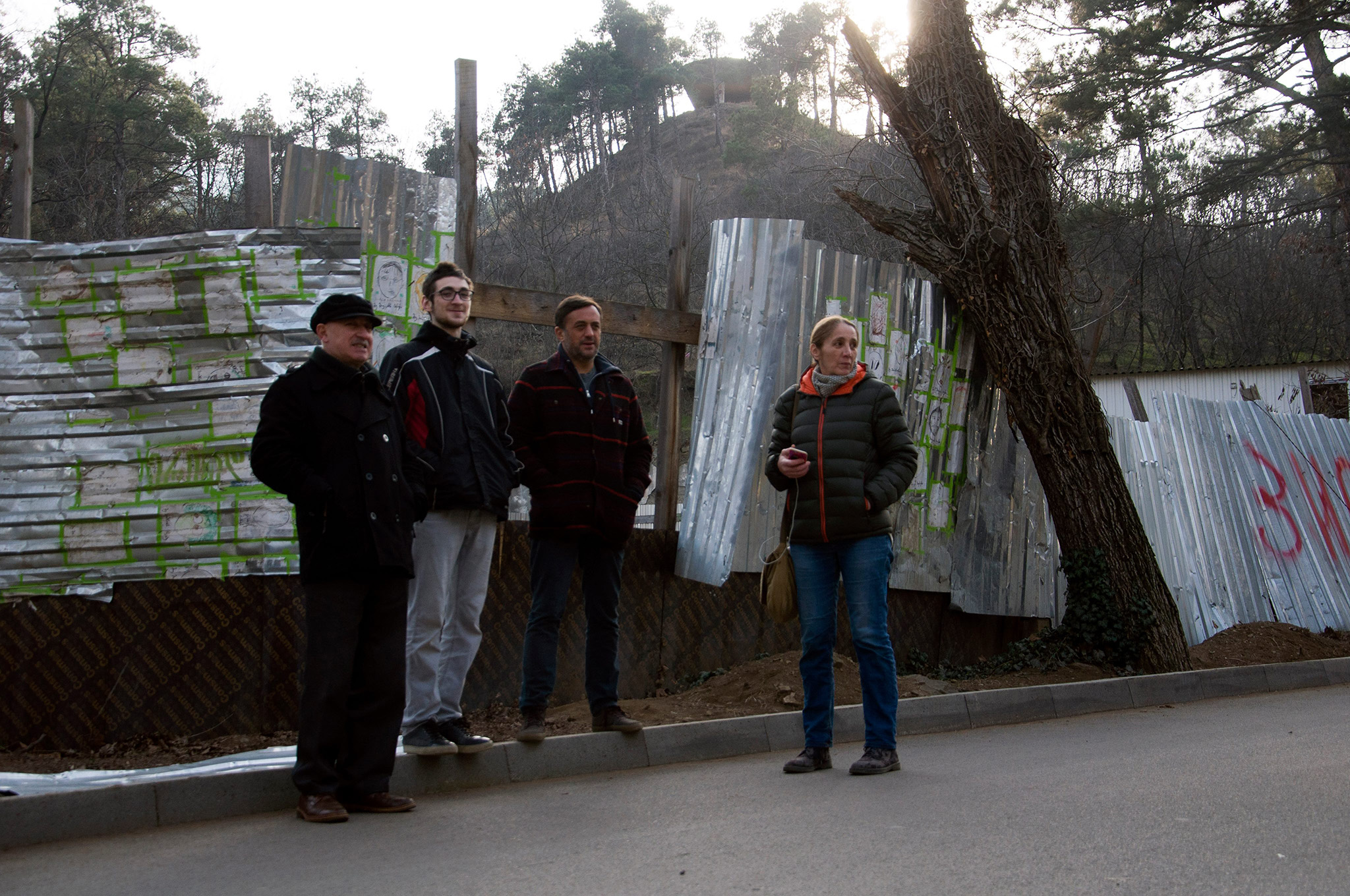
Guerilla Gardening Tbilisi began as a group of citizens planting trees and bushes throughout the city at their own expenses in protest at Tbilisi City Hall’s ‘poor greening policy’.
When it came to protecting Vake Park, Peradze and her fellow Guerilla Gardeners spent multiple winter nights in tents in the park to stop construction work from proceeding.
Levan Kalandarishvili, an architect and a member of Guerilla Gardening Tbilisi told OC Media that ‘selling this territory was a huge mistake made in the 90s’.
He pointed to a 1945 map of Vake Park, acquired from the archives, saying that it coincided with the contours of the park.
‘I started in Guerilla Gardening by planting trees, but after we heard about what they were going to build here, we started gathering documents. This map acquired from the archive shows how the park was intended to develop. [The authorities] must decide how the city will benefit from constructions. The city needs a different kind of development’, Kalandarishvili said.
Irakli Jugheli, a lawyer and another member of Guerilla Gardening Tbilisi, said he categorically disagrees that a hotel in Vake Park served the public interest.
‘The purpose of Vake Park is recreational and a hotel doesn’t fulfil this purpose’, Jugheli said.



